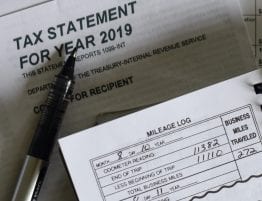
The IRS is contested by taxpayers for a number of reasons; sometimes rightly, sometimes wrongly. Though it is the right of taxpayers to disagree with the IRS and seek clarification, there are certain arguments the IRS and the courts regard as frivolous. These arguments have no legal basis and they have been proved wrong by the courts again and again.
If you find yourself in a dispute with the IRS for any reason, make sure to avoid these 5 frivolous arguments. They will only hurt your stance and weaken your case.
- Filing of a tax return is voluntary
Is filing of a tax return voluntary? No, the IRS says. Some taxpayers wrongly believe that they are not required to file a federal tax return because it is voluntary. They point out that the IRS tells taxpayers in Form 1040 instruction book that the tax system is voluntary.
The IRS clarifies the law: The word ‘voluntary’ as used in IRS publications refers to our system of allowing taxpayers initially to determine the correct amount of tax and complete the appropriate returns, rather than have the government determine tax for them from the outset. This in no way means that filing a tax return is voluntary.
- Payment of federal income tax is voluntary
Some taxpayers rely upon the argument that they are not required to pay federal taxes because it is voluntary. They say that the U.S. system of taxation is based upon voluntary assessment and payment. They also claim that there is no provision in the Internal Revenue Code or any other federal statute that requires them to pay income tax.
The IRS says: The requirement to pay taxes is not voluntary. Section 1 of the Internal Revenue Code clearly imposes a tax on the taxable income of individuals, estates, and trusts, as determined by the tables set forth in that section. Furthermore, the obligation to pay tax is described in section 6151, which requires taxpayers to submit payment with their tax returns. Failure to pay taxes could subject the non-complying individual to criminal penalties, including fines and imprisonment, as well as civil penalties.
- Taxpayers can file a zero return to reduce their income tax liability
Some taxpayers report zero tax liability on their return to reduce their income tax even when they have taxable income. Some even request a refund of the taxes withheld by an employer. They typically attach to the zero return a corrected or manipulated” Form W-2 or another information return to show the income tax withholding.
The IRS explains the truth about zero return. A taxpayer that has taxable income cannot legally avoid income tax by filing a zero return. Section 61 provides that gross income includes all income from whatever source derived, including compensation for services.
Courts have repeatedly penalized taxpayers for making this frivolous argument.
- The IRS must prepare tax return for those who fail to file
Some argue that section 6020(b) requires the IRS to prepare and sign (under penalties of perjury) a federal tax return for a taxpayer who fails to file.
The IRS says that Section 6020(b) merely provides the IRS with a mechanism for determining the tax liability of a taxpayer who has failed to file a return. There is no law that says that the IRS is required to prepare the tax return for a person who fails to file. If a taxpayer fails to file on time, s/he attracts penalties and interest on the taxes owed.
- Complying with a summon by the IRS is voluntary
Some taxpayers refuse to comply to an administrative summon by the IRS saying that it is not mandatory to respond to or comply with.
The law says that a summon by the IRS must be responded to or complied with. The IRS is statutorily authorized to inquire about any person who may be liable to pay any taxes owed, and to summon a witness to testify or to produce books, papers, records, or other data that may be relevant or material to an investigation. If you receive a summon by the IRS, it’s mandatory to respond to it or comply with it.
Fill out the form for a free and confidential consultation.








